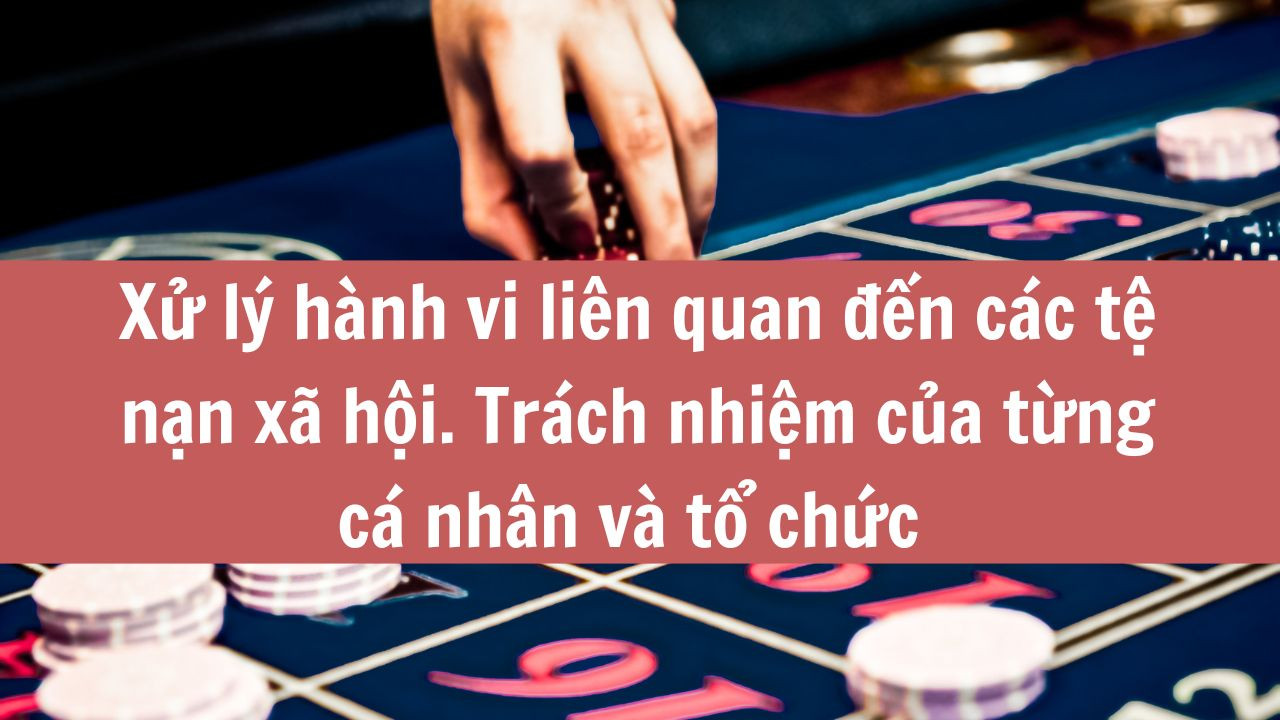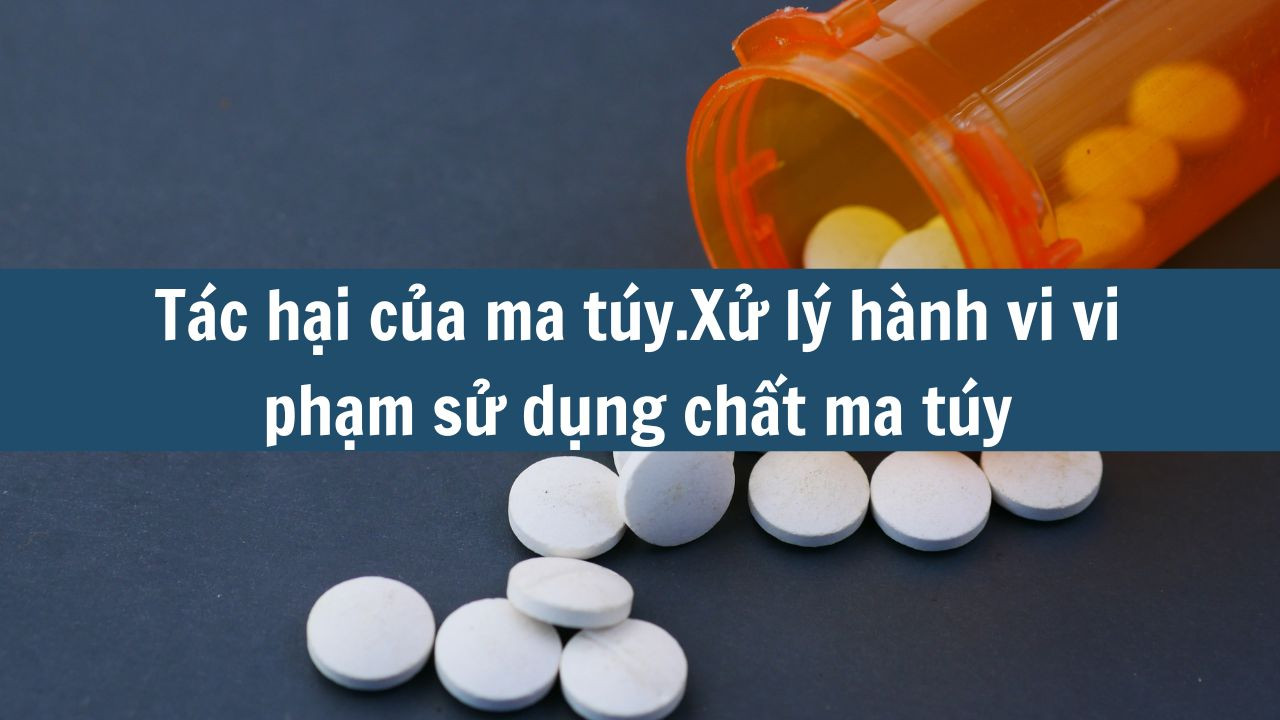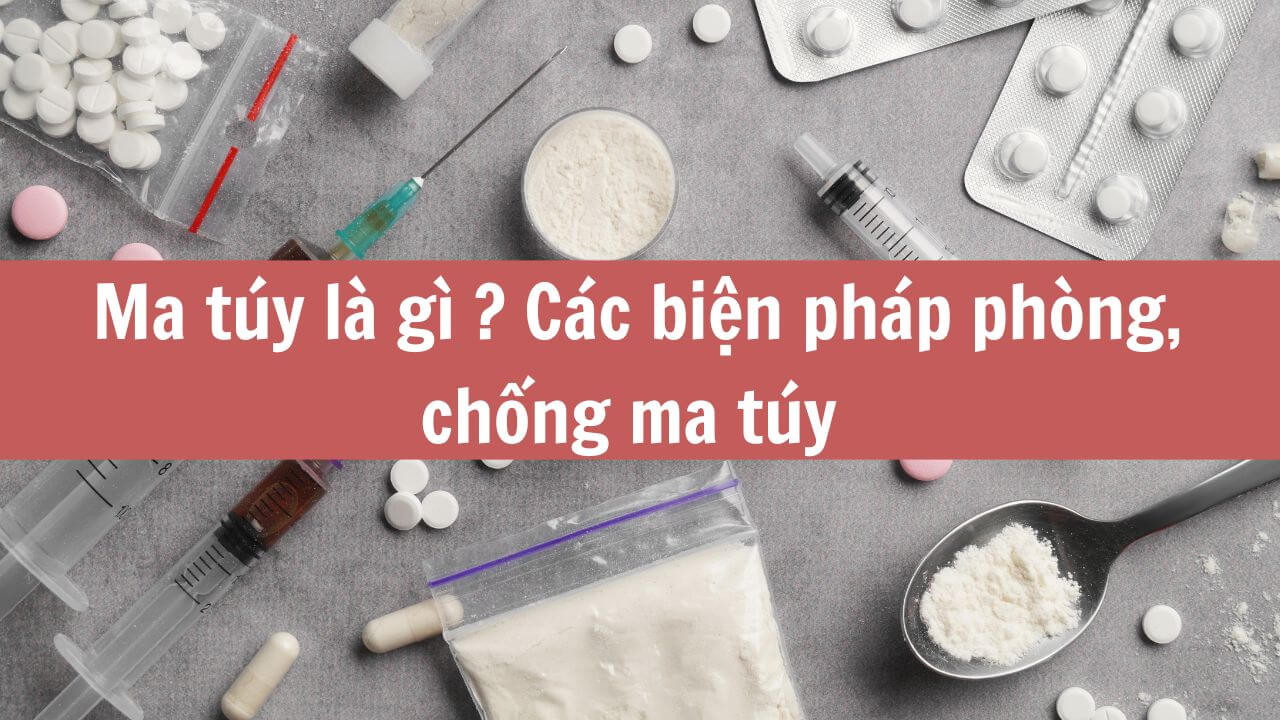 Tìm kiếm
Tìm kiếm
Chương II Luật Phòng, chống ma túy 2021: Trách nhiệm phòng, chống ma túy
| Số hiệu: | 73/2021/QH14 | Loại văn bản: | Luật |
| Nơi ban hành: | Quốc hội | Người ký: | Nguyễn Thị Kim Ngân |
| Ngày ban hành: | 30/03/2021 | Ngày hiệu lực: | 01/01/2022 |
| Ngày công báo: | 30/04/2021 | Số công báo: | Từ số 567 đến số 568 |
| Lĩnh vực: | Trách nhiệm hình sự | Tình trạng: | Còn hiệu lực |
TÓM TẮT VĂN BẢN
Văn bản tiếng việt
Văn bản tiếng anh
1. Tuyên truyền, giáo dục thành viên trong gia đình, người thân về tác hại của ma túy và thực hiện quy định của pháp luật về phòng, chống ma túy; quản lý, ngăn chặn thành viên trong gia đình vi phạm pháp luật về phòng, chống ma túy.
2. Thực hiện đúng chỉ định của người có thẩm quyền về sử dụng thuốc gây nghiện, thuốc hướng thần, thuốc tiền chất, thuốc thú y có chứa chất ma túy, tiền chất.
3. Hợp tác với cơ quan chức năng trong đấu tranh với tội phạm và tệ nạn ma túy; tham gia hỗ trợ hoạt động cai nghiện ma túy tự nguyện tại gia đình, cộng đồng, cai nghiện ma túy tại cơ sở cai nghiện ma túy và điều trị nghiện các chất dạng thuốc phiện bằng thuốc thay thế; theo dõi, giúp đỡ người sau cai nghiện ma túy hòa nhập cộng đồng; phòng, chống tái nghiện ma túy.
4. Cung cấp kịp thời thông tin về tội phạm, tệ nạn ma túy và việc trồng cây có chứa chất ma túy cho cơ quan công an hoặc cơ quan nhà nước có thẩm quyền; tham gia xóa bỏ cây có chứa chất ma túy do chính quyền địa phương tổ chức.
1. Tổ chức phòng, chống ma túy trong cơ quan, đơn vị; phòng ngừa, ngăn chặn cán bộ, công chức, viên chức, người lao động thuộc quyền quản lý và cán bộ, chiến sĩ thuộc lực lượng vũ trang nhân dân vi phạm pháp luật về phòng, chống ma túy; tuyên truyền, vận động Nhân dân phát hiện, tố giác, đấu tranh với tội phạm và tệ nạn ma túy.
2. Tổ chức thực hiện chủ trương, chính sách của Nhà nước về quy hoạch, phát triển kinh tế - xã hội để thay thế việc trồng cây có chứa chất ma túy tại các vùng xóa bỏ cây có chứa chất ma túy.
1. Tổ chức thực hiện chương trình giáo dục về phòng, chống ma túy; phổ biến, giáo dục pháp luật về phòng, chống ma túy cho học sinh, sinh viên, học viên; quản lý chặt chẽ, ngăn chặn học sinh, sinh viên, học viên vi phạm pháp luật về phòng, chống ma túy.
2. Phối hợp với gia đình, cơ quan, tổ chức và chính quyền địa phương để quản lý, giáo dục học sinh, sinh viên, học viên về phòng, chống ma túy.
3. Phối hợp với cơ quan, tổ chức, cá nhân có thẩm quyền tổ chức xét nghiệm chất ma túy trong cơ thể khi cần thiết để phát hiện học sinh, sinh viên, học viên sử dụng trái phép chất ma túy.
Cơ quan báo chí có trách nhiệm phối hợp với cơ quan, tổ chức có liên quan tuyên truyền chủ trương, chính sách, pháp luật về phòng, chống ma túy.
1. Tổ chức và phối hợp với cơ quan có thẩm quyền tuyên truyền, phổ biến kiến thức, pháp luật về phòng, chống ma túy trong Nhân dân; vận động Nhân dân tham gia phòng, chống ma túy và thực hiện các phong trào phòng, chống ma túy.
2. Phòng ngừa, ngăn chặn người của tổ chức mình và mọi công dân vi phạm pháp luật về phòng, chống ma túy.
3. Phối hợp với chính quyền địa phương các cấp, cơ quan có thẩm quyền vận động người nghiện ma túy thực hiện biện pháp cai nghiện ma túy, điều trị nghiện các chất dạng thuốc phiện bằng thuốc thay thế; tham gia cảm hóa, giáo dục, dạy nghề, tìm việc làm và giúp đỡ người sau cai nghiện ma túy hòa nhập cộng đồng; phòng, chống tái nghiện ma túy.
1. Cơ quan chuyên trách phòng, chống tội phạm về ma túy bao gồm:
a) Cơ quan chuyên trách phòng, chống tội phạm về ma túy thuộc Công an nhân dân;
b) Cơ quan chuyên trách phòng, chống tội phạm về ma túy thuộc Bộ đội Biên phòng, Cảnh sát biển Việt Nam và Hải quan.
2. Cơ quan chuyên trách phòng, chống tội phạm về ma túy thuộc Công an nhân dân, trong phạm vi nhiệm vụ, quyền hạn của mình, chủ trì, phối hợp với cơ quan, tổ chức có liên quan thực hiện các hoạt động phòng ngừa, ngăn chặn và đấu tranh chống tội phạm về ma túy.
3. Cơ quan chuyên trách phòng, chống tội phạm về ma túy thuộc Bộ đội Biên phòng, Cảnh sát biển Việt Nam, Hải quan, trong phạm vi nhiệm vụ, quyền hạn của mình, chủ trì, phối hợp với cơ quan công an, cơ quan, tổ chức khác có liên quan thực hiện các hoạt động phòng ngừa, ngăn chặn và đấu tranh chống tội phạm về ma túy tại khu vực hoặc địa bàn quản lý, kiểm soát.
4. Trên cùng một địa bàn khi phát hiện hành vi vi phạm pháp luật liên quan đến nhiệm vụ, quyền hạn của nhiều cơ quan thì cơ quan phát hiện trước có trách nhiệm xử lý theo thẩm quyền do pháp luật quy định; trường hợp vụ việc không thuộc thẩm quyền của mình thì chuyển giao hồ sơ, người, tang vật vi phạm pháp luật cho cơ quan có thẩm quyền chủ trì giải quyết.
5. Chính phủ quy định việc phối hợp của các cơ quan chuyên trách phòng, chống tội phạm về ma túy.
RESPONSIBILITIES FOR PREVENTION AND CONTROL OF NARCOTIC SUBSTANCES
Article 6. Responsibilities of individuals and families
1. Raise the awareness of family members of the harm of narcotic substances and compliance with regulations of law on narcotic substance prevention and control; manage and prevent family members from committing violations against regulations of law on narcotic substance prevention and control.
2. Properly follow indications for use of narcotic drugs, psychotropic drugs, precursor drugs and veterinary drugs containing narcotic substances or precursors from competent persons.
3. Cooperate with competent authorities in fighting against crime and social evils related to narcotic substances; support voluntary rehabilitation at home and in communities, rehabilitation in rehabilitation centers and opioid substitution therapy; monitor and assist persons having completed rehabilitation with integrating into society; and prevent relapse.
4. Promptly provide information on crime and social evils related to narcotic substances and growing of plants containing narcotic substances for the police or competent authorities; participate in removal of plants containing narcotic substances organized by local governments.
Article 7. Responsibilities of state agencies
1. Organize narcotic substance prevention and control in state agencies; prevent officials, public employees and workers under their management and officials and soldiers of the people’s armed force from committing violations against regulations of law on narcotic substance prevention and control; encourage the people to detect, report and fight against crime and social evils related to narcotic substances.
2. Organize implementation of state guidelines and policies on planning and socio - economic development to replace plants containing narcotic substances in areas where plants containing narcotic substances are removed.
Article 8. Responsibilities of educational institutions
1. Organize adoption of educational programs on narcotic substance prevention and control; raise awareness of law on narcotic substance prevention and control of their students; properly manage and prevent their students from committing violations against regulations of law on narcotic substance prevention and control.
2. Cooperate with families, regulatory bodies, organizations and local government in managing and educating their students on narcotic substance prevention and control.
3. Cooperate with competent persons, organizations and authorities in organizing testing for narcotic substance in body where necessary to detect students using narcotic substances illegally.
Article 9. Responsibilities of news agencies
Cooperate with relevant regulatory bodies and organizations in disseminating guidelines, policies and law on narcotic substance prevention and control.
Article 10. Responsibilities of Vietnam Fatherland Front, member organizations thereof and other organizations
1. Organize and cooperate with competent authorities in dissemination of knowledge and law on narcotic substance prevention and control among people; encourage people to prevent and control narcotic substances and join narcotic substance prevention and control movements.
2. Prevent workers of their organizations and all citizens from committing violations against regulations of law on narcotic substance prevention and control.
3. Cooperate with local governments at all levels and competent authorities in encouraging drug addicts to undergo rehabilitation and/or receive opioid substitution therapy; provide education, vocational training, employment opportunities and assistance for persons having completed rehabilitation to integrate into society; and prevent relapse.
Article 11. Drug-related crime preventing authorities
1. Drug-related crime preventing authorities include:
a) Drug-related crime preventing authorities affiliated to the police;
b) Drug-related crime preventing authorities affiliated to the Border Guard, Vietnam Coast Guard and customs authorities.
2. Within their competence, drug-related crime preventing authorities affiliated to the police shall take charge and cooperate with relevant regulatory bodies and organizations in preventing and fighting against crime related to narcotic substances.
3. Within their competence, drug-related crime preventing authorities affiliated to the Border Guard, Vietnam Coast Guard and customs authorities shall take charge and cooperate with the police and other relevant regulatory bodies and organizations in preventing and fighting against crime related to narcotic substances in areas under their management.
4. In any locality, the first authority to detect a violation against regulations of law related to the duties and powers of multiple authorities in the locality shall handle the violation within its competence as per the law; and hand over persons involved in violations beyond its competence and documents and exhibits thereof to the competent authority for handling.
5. The Government shall provide for the cooperation between drug-related crime preventing authorities.
Cập nhật
Bài viết liên quan
Xử lý hành vi liên quan đến các tệ nạn xã hội. Trách nhiệm của từng cá nhân và tổ chức

Xử lý hành vi liên quan đến các tệ nạn xã hội. Trách nhiệm của từng cá nhân và tổ chức
Phòng tránh tệ nạn xã hội không chỉ là việc của một cá nhân, tổ chức mà cần phải có sự phối hợp chung tay của cả cộng đồng. Việc phòng tránh tệ nạn xã hội là trách nhiệm của toàn hệ thống chính trị kết hợp với người dân. 06/11/2024Tác hại của ma túy. Xử lý hành vi vi phạm sử dụng chất ma túy

Tác hại của ma túy. Xử lý hành vi vi phạm sử dụng chất ma túy
Ma túy là một hiểm họa lớn nhưng chúng ta hoàn toàn có thể chiến thắng. Hãy cùng nhau chung tay đẩy lùi tệ nạn này để xây dựng một xã hội lành mạnh và văn minh. Sử dụng ma túy là một hành vi nguy hiểm, gây ra nhiều hậu quả nghiêm trọng cho bản thân, gia đình và xã hội. Ma túy không chỉ gây hại cho sức khỏe mà còn làm suy yếu ý chí, phá hủy cuộc sống của người sử dụng. 05/11/2024Ma túy là gì? Các biện pháp phòng, chống ma túy


 Luật Phòng, chống ma túy 2021 (Bản Pdf)
Luật Phòng, chống ma túy 2021 (Bản Pdf)
 Luật Phòng, chống ma túy 2021 (Bản Word)
Luật Phòng, chống ma túy 2021 (Bản Word)